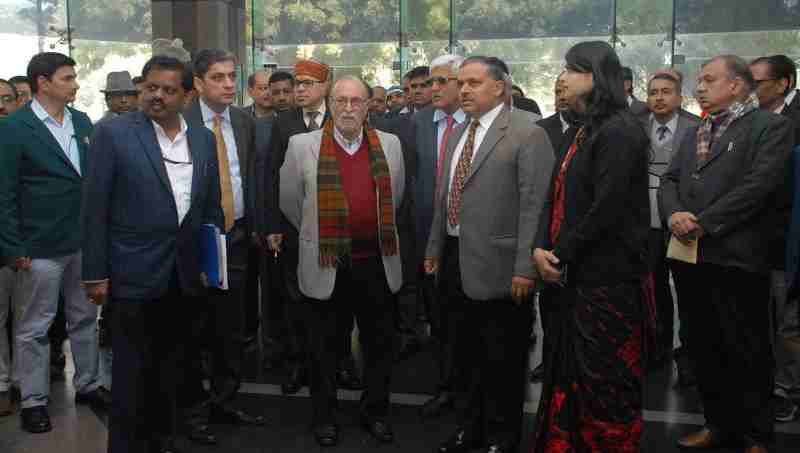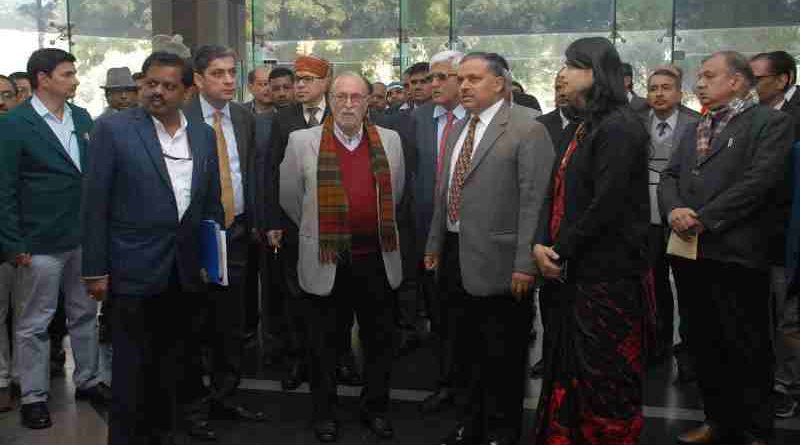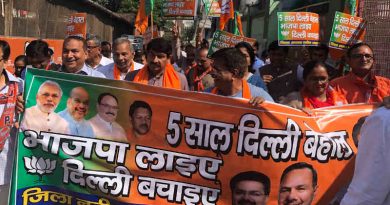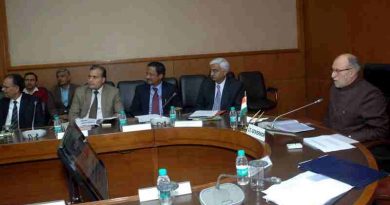Lt. Governor Anil Baijal to Solve Delhi’s Parking Problems

In order to streamline the parking system, Delhi government can introduce road space rationing to restrict the number of vehicles on roads.
By Rakesh Raman
The new Lt. Governor of Delhi Anil Baijal who has recently assumed office after the resignation of Najeeb Jung has decided to make a policy to ensure smooth parking in the city.
In a meeting held Wednesday, Baijal recommended need-based parking solutions. He also has directed a dedicated team of officials to make a comprehensive plan which could be easily implemented.
The plan, according to the Lt. Governor, will be made in coordination with other departments such as the Delhi Development Authority (DDA), Municipal Corporation of Delhi (MCD), and the Public Works Department (PWD).
For need based parking solutions, Comm (Transport) to evolve a doable comprehensive parking policy with traffic police, DDA, MCDs & PWD.
— LG Delhi (@LtGovDelhi) February 1, 2017
As the number of private vehicles is increasing at an alarming rate in Delhi, the parking system has gone totally haywire. The increasing number of cars is a major irritant in the city because of traffic hassles and increasing vehicular pollution.
[ Why Arvind Kejriwal Wants to Run Away from Delhi ]
The parking problem is not only causing trouble in commercial areas, but housing colonies are also equally affected, as the managing committees in most housing complexes are not willing to solve the problem.
The Delhi High Court, for example, has ruled that only one car per flat will be allowed in housing society parking lots.
But Delhi government has failed to check the menace and playing hand in glove with the corrupt managing committees of the housing societies that allow residents to park multiple vehicles inside the society premises under some secret deals with the erring residents.
[ Can Government Check Corruption in Delhi Housing Societies? ]
If the Lt. Governor wants to solve the parking problem, he must order a crackdown on housing societies that are exacerbating the problem by allowing multiple cars in the housing complexes. Plus, the government should not allow parking on roads outside the housing societies as it hampers the flow of traffic.
The plan must also aim to restrict the sale and purchase of new vehicles, as nearly 1 million vehicles are registered in a year in Delhi which now has an estimated 10 million vehicles in the city’s population of about 20 million.
In order to streamline the parking system, Delhi government also can introduce road space rationing to restrict the number of vehicles on roads. It is a transportation demand management system aimed to reduce traffic by restricting automobile travel. It restricts the use of cars based on the last digits of the license number.
Other road space rationing regulations include the even-odd license plate policy, yellow label car policy, end-number policy, and passenger car purchase policy. Moreover, there can be a passenger car quota system to put an upper limit to the number of cars that can be sold in a month.
By Rakesh Raman, who is a government award-winning journalist and runs free school for deserving children under his NGO – RMN Foundation.
Photo courtesy: Delhi Government






